Effect of supplemental irrigation on leaf stomatal conductance of field-grown wheat in northern Syria

Authors:
Stomatal conductance (gs) of field-grown wheat during the transition period from rainy to dry seasons in northern Syria was examined in relation to the vapor pressure deficit of the air (VPDa), solar radiation (RS), and the soil available water (AW) under three irrigation regimes. Midday depression of gs was evident in diurnal observations even with sufficient soil water, and an analysis of the data indicated a significant relationship between gs and AW/VPDa. The seasonal estimates of gs showed an apparent decline under high evaporative demand in all moisture regimes. A theoretical explanation of the observed relationship indicated that the effect of supplemental irrigation on stomatal opening declined toward the end of the planting season. These results suggest that reduced irrigation concentrated in the early stage of VPDa escalation would improve the water use efficiency of wheat grown in this area.
